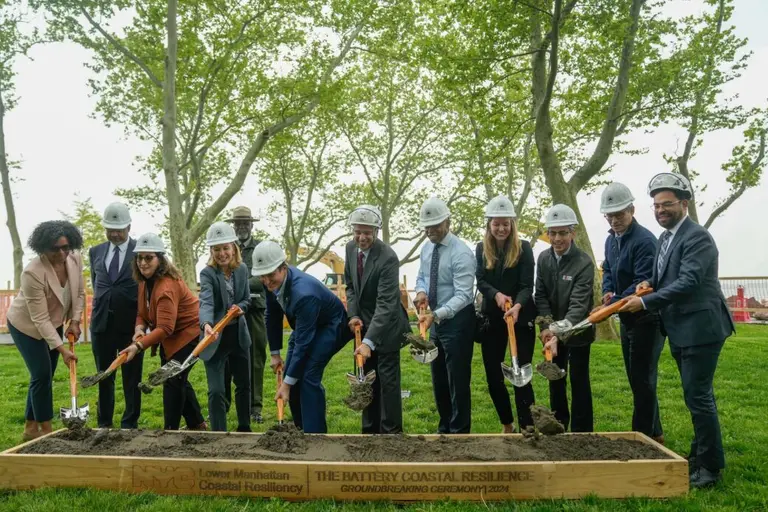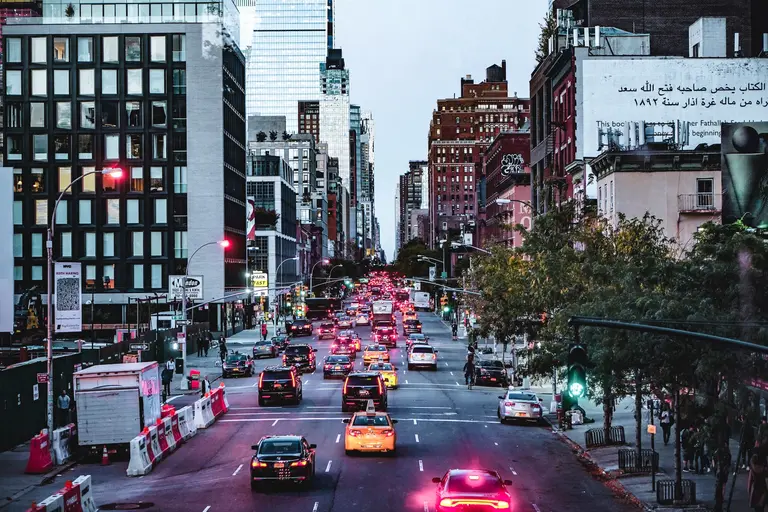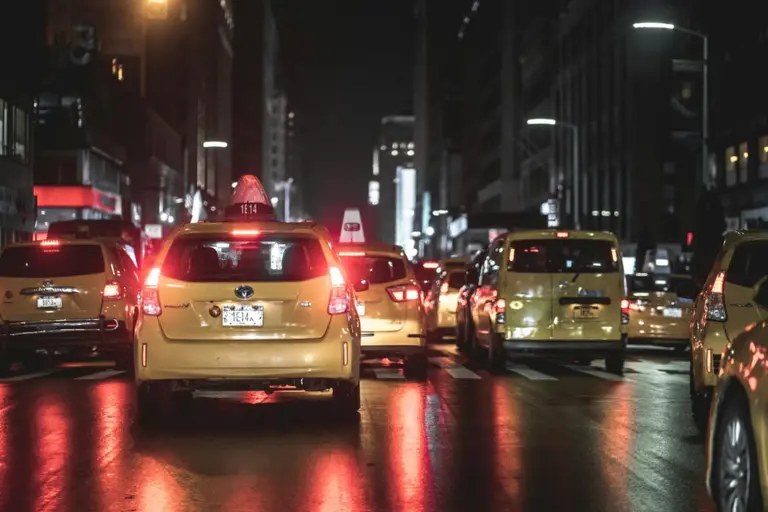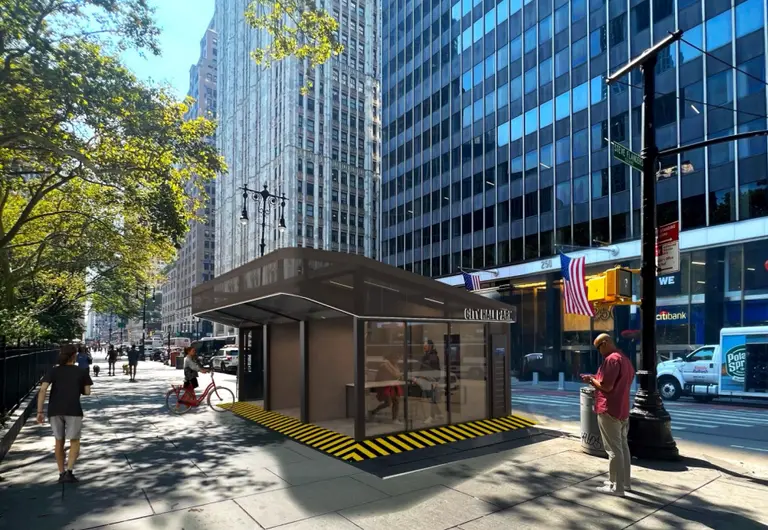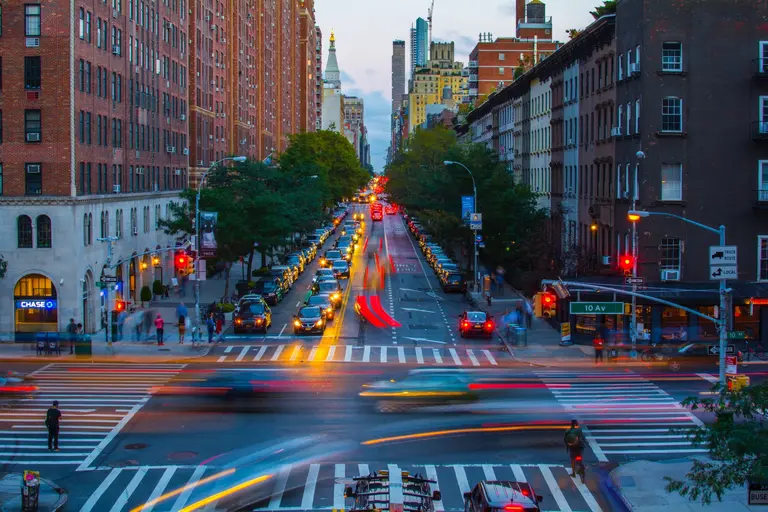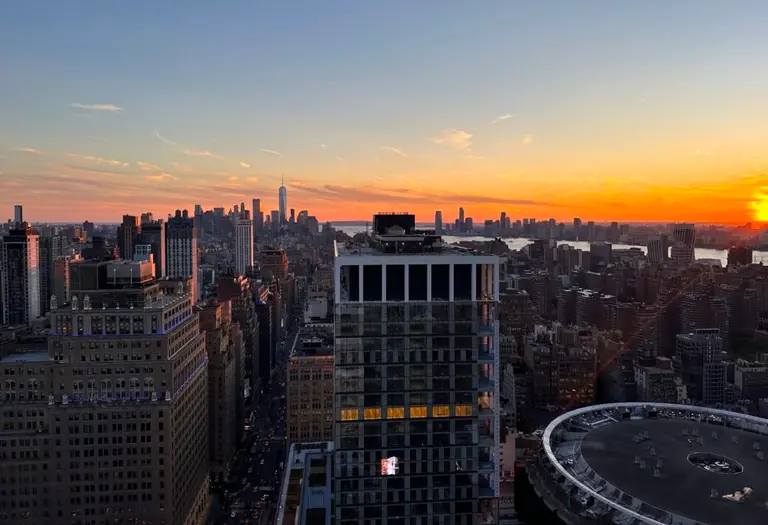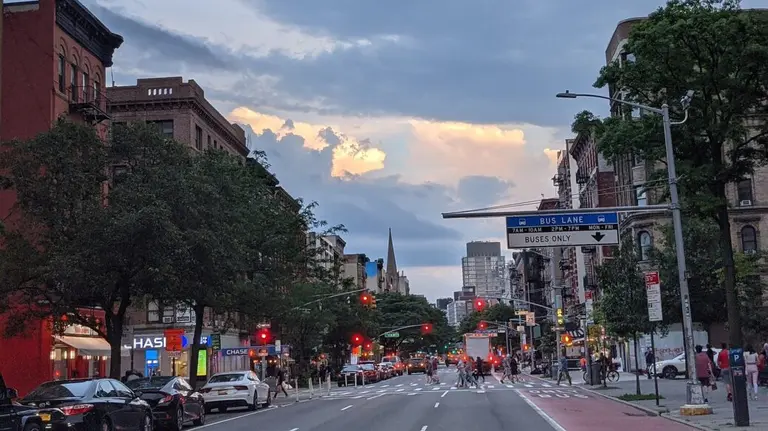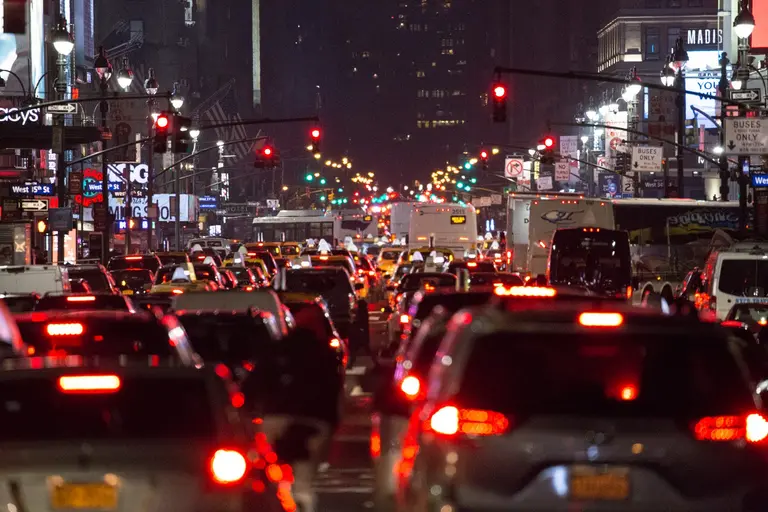Drivers will likely pay $15 to enter certain parts of Manhattan as part of congestion pricing plan
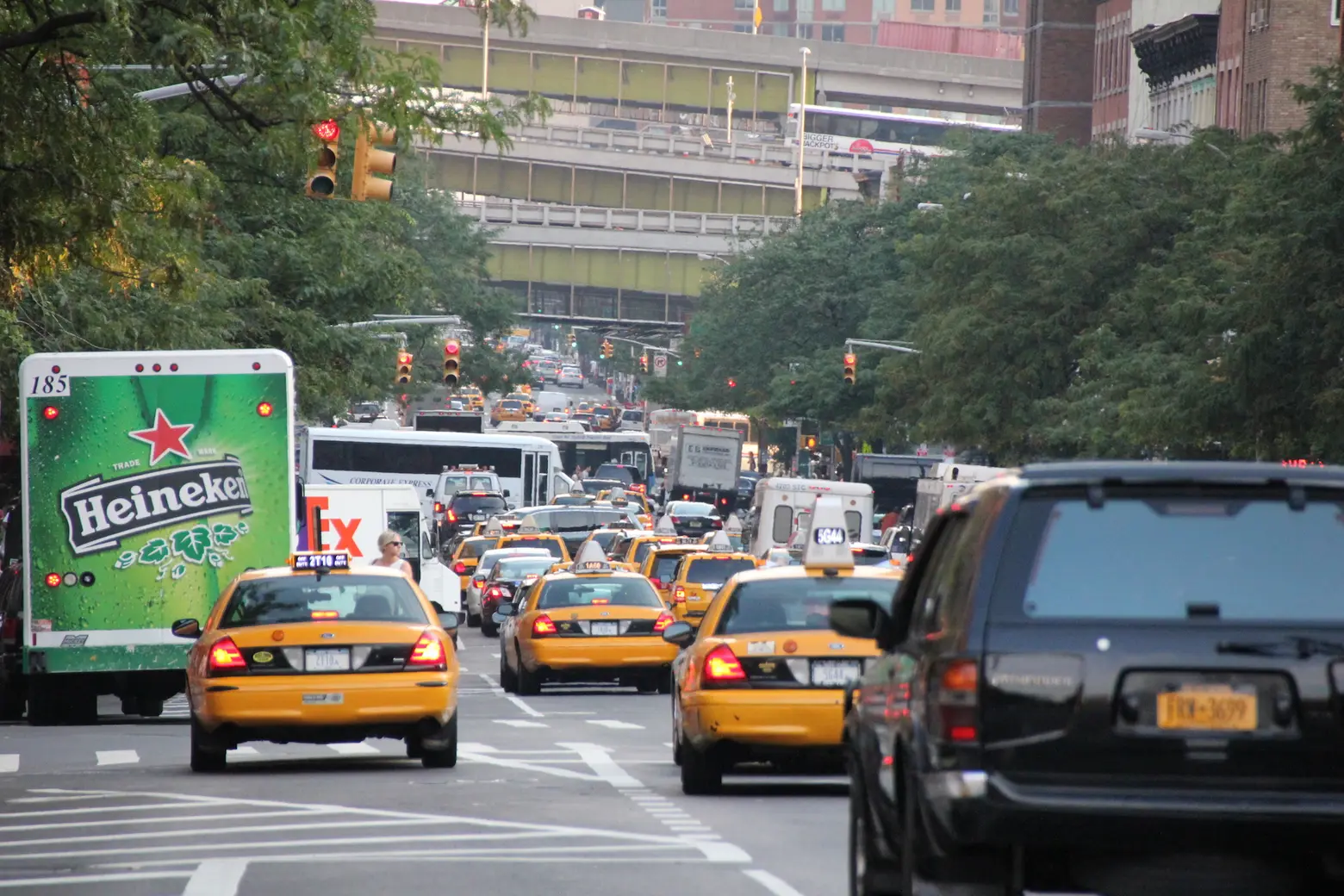
Photo by Raidarmax on Wikimedia Commons
Drivers entering certain parts of Manhattan could be charged a $15 toll as part of New York City’s congestion pricing program, the first of its kind in the nation. As first reported by the New York Times, the Traffic Mobility Review Board released a report on Thursday detailing the pricing structure for the tolls for the Central Business District Tolling Program, which covers an area of Manhattan from 60th Street to the Battery. The program aims to alleviate traffic, encourage the use of public transit, and reduce pollution, all while generating $1 billion in annual revenue for the Metropolitan Transportation Authority.
According to the report leaked Wednesday, drivers entering Manhattan below 60th Street will pay $15 once per day, commercial trucks will pay up to $36, taxis will add $1.25 per fare, and ride-sharing apps like Uber and Lyft will add $2.50 per ride.
The program offers exemptions to certain drivers. Drivers who make less than $50,000 annually will receive 50 percent off tolls during the day after their first 10 trips in a calendar month. Driving at night will cost less, with fees reduced by 75 percent between 9 p.m. and 5 a.m.
Passenger vehicles who enter the congestion pricing zone through the Queens-Midtown, Hugh L. Carey, Holland, and Lincoln Tunnels will get a $5 credit during the daytime. Motorcycles will receive a $2.50 discount, small commercial trucks will get a $12 credit, and larger trucks will get a $20 discount. However, motorists who enter Manhattan via the George Washington Bridge will not receive a discounted toll.
Select vehicles carrying disabled passengers and authorized emergency vehicles will not be charged. Drivers whose primary residence lies within the congestion pricing area and whose income is below $60,000 can apply for a tax credit equal to their total toll amount.
The CBD is designed to drive traffic out of Manhattan’s most congested areas between 6 a.m. and 8 p.m. on weekdays and 10 a.m. to 10 p.m. on weekends. According to estimates from the MTA’s analysis of the program, the CBD will decrease truck traffic between 55 and 81 percent, as 6sqft previously reported.
The new tolls could generate approximately $1 billion in annual revenue for the MTA which will be put towards improving the city’s subway and bus systems.
In May, the FHWA approved the environmental assessment of the CBD, which gave way to a 30-day public review process before final approval could be granted. After the public review process concluded in June, the FHWA gave the program final federal approval. The initial scale of the toll pricing was between $9 and $23 for non-commercial vehicles and between $12 and $82 for trucks.
The proposed pricing will be presented to the public and voted on by the MTA board, likely next year. The program could begin as early as next May, but currently faces a lawsuit filed in July by New Jersey officials, who claim the tolls are unfair to Garden State residents. Gov. Phil Murphy in a statement on Wednesday called the recommended credit structure “wholly inadequate.”
“As a conceptual matter, I support congestion pricing, as long as it is structured in a way that is fair to all sides. This plan is neither fair nor equitable,” Murphy said.
“The Traffic Mobility Review Board’s recommended credit structure is wholly inadequate, especially the total lack of toll credits for the George Washington Bridge, which will lead to toll shopping, increased congestion in underserved communities, and excessive tolling at New Jersey crossings into Manhattan. Everyone in the region deserves access to more reliable mass transit, but placing an unjustified financial burden on New Jersey commuters is wrong.”
If approved, NYC will join other major cities around the globe that have implemented congestion reduction programs. Stockholm, London, and Singapore are a few of the cities that have successfully decreased traffic through similar initiatives. The NYC proposal would cost drivers slightly less than London’s program and a little more than Stockholm’s.
According to the MTA, the recommendations will be considered on December 6 by the Board of the Triborough Bridge and Tunnel Authority and putting forward a toll schedule for review by the public. Public hearings will begin in February and the MTA will then schedule a vote on the toll rate schedule.
The agency said 60 percent of the infrastructure needed to collect the tolls is already installed.
“I am so grateful that this all-star panel has produced an incredibly thoughtful, detailed and balanced report that points the way forward for effective implementation of congestion pricing,” MTA Chair and CEO Janno Lieber said. “Congestion pricing will mean less traffic, cleaner air, safer streets and better transit.”
RELATED:




